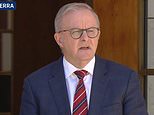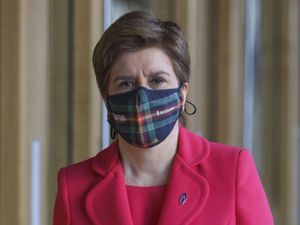New reports confirm that Vice President JD Vance’s recent remarks regarding his hope that his Hindu wife, Usha Chilukuri Vance, will convert to Christianity have ignited a fiery debate about interfaith marriage in the United States. During a Turning Point USA event at the University of Mississippi on October 24, 2023, Vance expressed his wishes for his wife’s religious transition, raising urgent questions about the dynamics of interfaith relationships.
The controversy erupted when Vance addressed how he and his wife raise their children amidst differing faiths. “Do I hope that eventually she is somehow moved by what I was moved by in church? Yeah, honestly, I do wish that,” Vance stated. He acknowledged that while his wife is not a Christian and has no plans to convert, he respects her beliefs. “God says everybody has free will, and so that doesn’t cause a problem for me,” he added.
Critics were quick to respond, with the Hindu American Foundation condemning Vance’s comments as reflective of a broader trend of religious coercion. “Your statements regarding your wife’s religious heritage underline a belief in a singular path to salvation,” the organization stated, highlighting a concerning rise in anti-Hindu rhetoric in religious discourse.
Experts in interfaith relationships stress the importance of mutual respect and open dialogue. Susan Katz Miller, author of Being Both: Embracing Two Religions In One Interfaith Family, emphasized that “pressuring one’s spouse to convert or even hoping they would convert is not a good basis for a successful marriage.” With 39% of Americans married since 2010 being in interfaith unions, the need for constructive discussions has never been more critical.
Vance’s comments were met with backlash on social media, where he defended his wife, calling her “the most amazing blessing” in his life. In a post on X, he reiterated his commitment to support her beliefs, stating, “Regardless, I’ll continue to love and support her and talk to her about faith and life.”
The couple, who married in 2014 after both identifying as atheist or agnostic, chose to raise their children as Christians, participating in significant rites such as the Catholic First Communion. Vance converted to Catholicism in 2019, a transition that the Catholic Church mandates for interfaith couples regarding child-rearing, according to theology professor John Grabowski.
Vance’s remarks have intensified discussions surrounding the complexities of interfaith marriages in America, especially in light of a Pew Research Centre survey revealing that interfaith marriages have surged in recent years. “Interfaith couples have different options,” Miller explained, underscoring the evolving nature of religious identity in family life.
The implications of Vance’s statements reach beyond personal beliefs, reflecting wider societal conversations about faith, identity, and respect in marriages that cross religious boundaries. As the discourse continues, many are left to ponder the balance between faith and partnership in an increasingly diverse society.
As the debate unfolds, all eyes will be on how public figures and couples navigate these sensitive discussions and what this means for the future of interfaith relationships in America.







